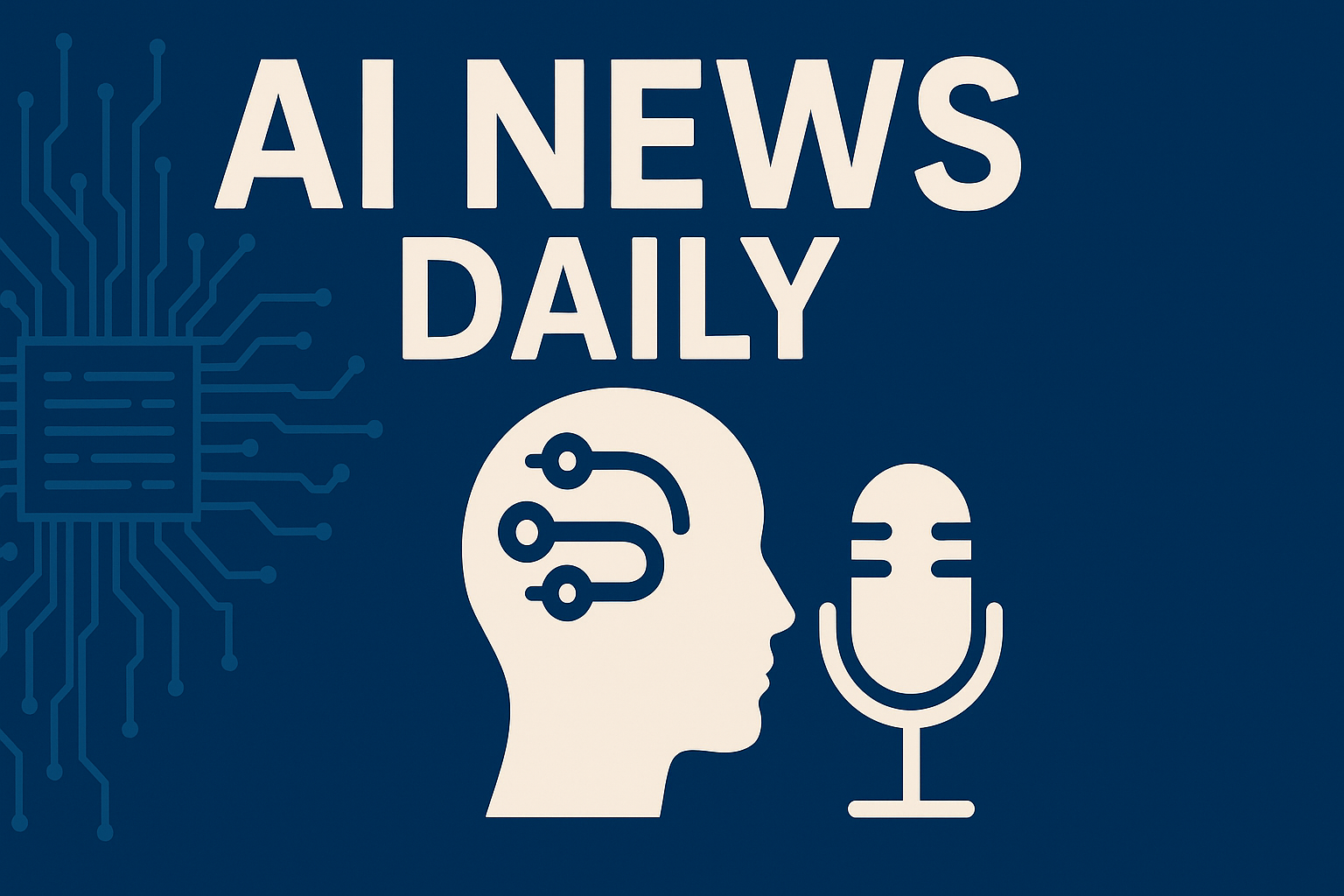Title: AI Breakthroughs Reshape Global Industries Amid Rapid Adoption, Security Concerns, and Regulatory Pushback
Content:
Artificial intelligence is accelerating transformation across diverse sectors, with recent milestones highlighting both the technology’s promise and the mounting challenges it presents.
**AI Achieves Unprecedented Success in Mathematical Reasoning**
OpenAI and Google DeepMind models stunned the world by clinching gold medal-level performance at the International Mathematical Olympiad, solving complex problems on par with top human competitors. OpenAI’s math-capable model, which solved five out of six Olympiad problems, and DeepMind’s Gemini mark a leap toward AI capable of abstract reasoning. These developments intensify debates over artificial general intelligence and transparency within AI research. OpenAI’s broader AI infrastructure is set for a major expansion, as CEO Sam Altman announced plans to activate over a million GPUs by year-end—far outpacing competitors—and the company gears up for the launch of GPT-5, which will feature advanced multimodal capabilities.
**AI Integration in Media, Entertainment, and E-Commerce**
Netflix made headlines by using AI-generated footage in its series “The Eternaut,” achieving complex visual effects ten times faster than traditional methods. The streaming giant also partnered with Runway AI to supercharge its editing and post-production processes, showcasing the rising influence of AI in creative industries. Meanwhile, Athena, a startup by a former Google engineer, is helping brands optimize their visibility in AI-driven search, signaling a broader digital marketing shift toward the “zero-click internet.” Perplexity’s newly launched Comet browser further integrates AI into users’ online experiences, automating tasks and summarizing content in real-time, while OpenAI reportedly plans to add e-commerce shopping capabilities directly within ChatGPT, potentially transforming online retail through personalized AI-driven recommendations.
**AI Tools Transform Work, Study, and Healthcare**
OpenAI’s ChatGPT now processes over 2.5 billion prompts daily, underscoring the mainstream adoption of AI-powered tools in education, the workplace, and daily life. Surveys highlight students’ dependence on AI-enabled virtual tutors for personalized learning and instant feedback. In the workforce, employers are urging employees to master AI technologies to ensure their job security and future career relevance, a sentiment echoed by Perplexity CEO Aravind Srinivas, who urges Gen Z to prioritize learning AI. On the healthcare front, AI-powered apps like RxFood are assisting diabetics in tracking nutrition through meal photos, while a new tool from Heriot-Watt University enables early skin cancer diagnosis in remote regions using only affordable devices.
**Innovation, Partnerships, and Global Competition**
OpenAI’s partnership with the UK government aims to bolster the nation’s AI infrastructure, fueling innovation, economic growth, and improved public services. In China, Zhipu—a key OpenAI competitor—is preparing for a potential Hong Kong IPO amid mounting industry rivalry. Nokia has launched agentic AI tools to optimize telecom network management, while AMD and Stability AI have enabled advanced local art generation on laptops without high-end GPUs.
**Security and Ethical Risks Proliferate**
The rapid integration of AI has exposed new security challenges and ethical dilemmas. Malicious actors exploit AI for phishing and malware campaigns, utilizing cloaking techniques and tools like Google Gemini to craft more convincing schemes. Critical flaws, such as a severe vulnerability found in NVIDIA’s AI container software, highlight the urgent need for robust cybersecurity measures.
AI-driven manipulation is raising alarms in academia, with a notable case from the National University of Singapore involving hidden prompts designed to bias peer review. Concerns about privacy also intensify as tech firms quietly harvest user data to train AI models, with limited options for users to opt out. Regulatory scrutiny is on the rise: the Kerala High Court in India has banned the use of AI tools in judicial decision-making, while Abu Dhabi authorities have warned about privacy and deepfake risks associated with AI cartoon avatar apps.
**Societal Impact and Responsibility**
AI’s deepening presence in daily life prompts new societal questions. Studies from MIT caution that overreliance on tools like ChatGPT may erode critical thinking skills, calling for measured use. AI-powered wellness apps, while providing emotional support, can foster unhealthy attachments, with experts demanding stricter transparency and oversight. Adobe faces challenges to its promise of “commercially safe” AI-generated content due to unclear copyright protections surrounding third-party integrations.
On the regulatory front, the Nuclear Threat Initiative emphasizes growing biosecurity risks as AI becomes enmeshed in genomics and biotechnology, urging stronger international guidelines to avert abuse.
**Innovation in Child Safety and Global Impact**
To address concerns for younger users, Elon Musk’s xAI is set to launch “Baby Grok,” a child-focused chatbot featuring robust content filters and parental controls. WorldFish’s SmartCatch app, which helps small-scale fishers document and analyze catches for sustainability, recently won a UN prize, demonstrating AI’s positive impact in global development.
As AI adoption explodes, industry leaders and policymakers face the dual challenge of accelerating innovation while ensuring responsible deployment, ethical integrity, and robust security—heralding a pivotal era in the evolution of artificial intelligence.
